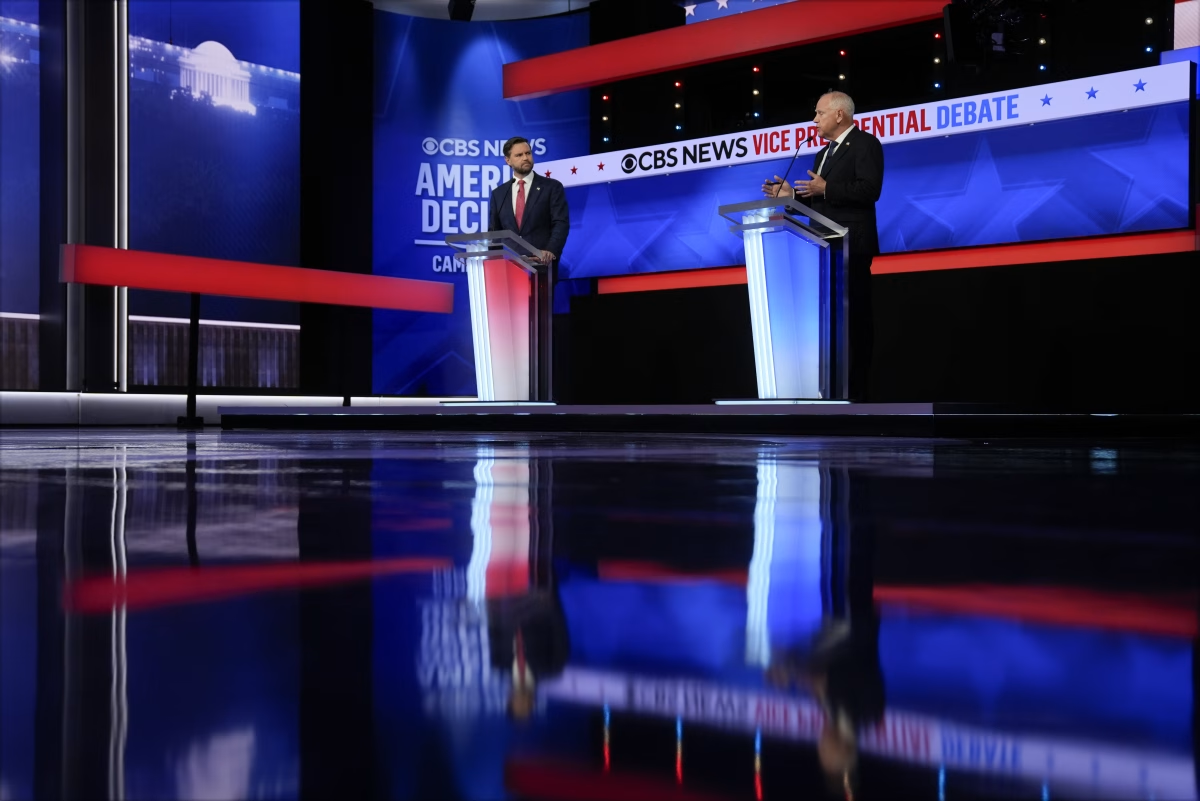The 2020 election drew record numbers of Generation Z voters, with 65% of voters ages 18-29 casting their votes for the winning Biden-Harris ticket.
As the 2024 presidential election approaches, many younger voters are reevaluating their party affiliations and are making new plans for election day after four years under Biden’s administration, exploring third party candidates.
According to the Census Bureau, the 2020 election showed the largest increase in voter turnout in between presidential elections, despite an election year held amidst the peak of the Covid-19 pandemic.
Gen Z followed these trends, flocking to the polls to cast their votes, but as the primary season begins, Biden’s approval rating among younger voters has fallen to 35%.
Zach Frye, a junior and a community organizer for Aurora’s Participatory Democracy Hub, an organization that brings people together to create a local ordinance for the City of Aurora, cast his vote for President Joe Biden in the 2020 election.
With the administration in its fourth year, Frye is disappointed with the Biden presidency.
“I was convinced during [2020] that voting for Democrats was ‘the lesser of two evils’ without recognizing that both parties are two sides of the same coin,” Frye said.
Frye recalls the inability to pass a federal $15 minimum wage, the lack of meaningful reforms following the 2020 civil uprisings following the murder of George Floyd, and the continued humanitarian crisis in Gaza as reasons he has abandoned his once fervent support for the probable Democratic nominee.
Katrina Phidd, Director of Communications at Chicago Votes, a not-for-profit organization that seeks to mobilize young people to change politics, says that young people’s feelings of disappointment and concern are valid.
“I think this administration has made a lot of promises to young people and fallen through on nearly every single one of them,” Phidd said, pointing to promises for student loan forgiveness and better financial health.
Phidd also added that the lack of follow-through on certain campaign promises creates a feeling of mistrust among younger voters.
“It’s not healthy to have a relationship where someone just lies to you all the time…. People are going to leave that relationship. People are not going to participate in that relationship,” Phidd said. “That’s what we see with Gen-Z…. We haven’t seen our votes translate into change in our communities.”
But, Jane Ruby, the President of the League of Women Voters of Chicago, an organization that seeks to empower voters says that remaining passionate about key issues can help mobilize voters.
“It really is about identifying key issues that people are passionate about right now. … On the younger end of people that are registered to vote in this country, there are things like climate change, student debt, access to healthcare,” Ruby said.
Though Frye fears another four years under former President Donald Trump, he believes Democrats’ interests closely align more with conservative ideologies.
“Trump’s fascism was more overt and ‘mask-off’ so-to-speak,” Frye said. “However it is important not to forget that the Democrats merely hide behind a facade of progressive politics rather than actually practicing them.”
However, Ruby stresses the importance of political participation in the upcoming election despite possible apathy.
“I would love to see more people, especially young people get excited about voting for your neighbor, your family, people you’ve never met,” Ruby said. “We’re all a part of this global community, and it does not work if we do not have people participating.
The number of young voters who identify as Democrats are falling, with the Institute of Politics (IOP) at the Harvard Kennedy Center finding the percentage dropping from 40% in 2020 to 35%, preceding the upcoming election.
The new findings from the IOP also show Gen Z voters are more likely to vote third-party than in years past.
Frye sees this as his path for the 2024 election, identifying the longstanding American two-party system as an unsustainable model for Democracy.
“We as voters need to start embracing third party options,” Frye said.
As the November election kicks off its primary season, Frye calls upon members of Gen Z to remain vigilant and explore other outlets of political participation. “I encourage my peers to get organized!” Frye said. “If you find yourself wanting life in America to be better, you have to do more than just vote. We cannot expect someone else to liberate us, we have to do that work ourselves.”














